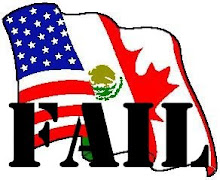For months we’ve heard of the requirements to cross into the US from Canada. Passports, Nexus, enhanced ID, WHTI…all of these buzzwords floating around. And yet its a safe bet that a large amount of people aren’t going to be ready on Monday with the right documents. Ce la vie.
But now we have a slight turnaround by the acting US customs commissioner Jayson Ahern. From a recent Boston.com article:
US customs officials said they will not strictly enforce new identification requirements at land and sea borders with Canada on June 1 because of business leaders' concerns about the impact on trade and travel.
Customs and Border Protection officers will issue warnings to most people who lack the correct documents and use discretion in detaining people for questioning, said Jayson Ahern, acting customs commissioner.
The United States "will have a flexible enforcement policy on June 1," he told reporters. Eventually, "we'll get to a point where" full compliance will be required, he said.
So all the tough talk about how the US will not waiver on the June 1st deadline apparently was just that: talk?! Because somehow pushing the date back would have been a sign of weakness or unpreparedness, and announcing that warnings will be issued for a non-specific amount of time (and potentially on which CBP officer you get on a given day) is somehow different?
We may not like the rules that the US is setting up, but at least we’re in a better position where we know what the rules are. When the target keeps changing, and when comments like this are made, it does nothing but cause confusion. People reading this article who do not have WHTI approved documents are going to think they can still cross on June 1st. Maybe they will, but probably they won’t.




